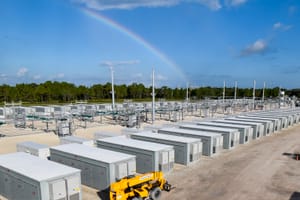South Dakotans voted Tuesday for seven ballot measures, 105 state legislators, a couple of statewide offices and a U.S. president.
Here are real-time results on those statewide issues and offices from The Associated Press and the Institute for Nonprofit News. Look for investigative reporter Stu Whitney's top takeaways from the election on Wednesday.
US President
Donald Trump defeated Democratic Vice President Kamala Harris and Libertarian Chase Oliver to take South Dakota's three electoral votes. Independent candidate Robert F. Kennedy Jr. withdrew and supported Trump but still appeared on the ballot.
US House
Republican U.S. Rep. Dusty Johnson won a fourth, two-year term by defeating Democratic challenger Sheryl Johnson (no relation). The Pierre native previously served as chief of staff to former Gov. Dennis Daugaard and on the Public Utilities Commission and has his sights set on governor in 2026.
SD Public Utilities Commission
Republic Kristie Fiegen was on her way to earning another six-year term on the Public Utilities Commission, which regulates electric, natural gas and telephone utilities, issues permits for energy projects, pipelines and other projects and handles other duties. Her challengers include Libertarian A. Gideon Oaks and Democrat Forrest Wilson. Fiegen was appointed in 2011 and re-elected in 2012 and 2018.
Amendment G: Abortion
If passed, Amendment G would enshrine the right to abortion in the South Dakota Constitution and supersede a 2005 state trigger law that took effect when Roe vs. Wade was overturned. Abortion is currently banned in the state.
Amendment H: Open primaries
Approval of Amendment H would establish “top-two” primaries for governor, Congress and state legislative and county races rather than having parties hold separate primary contests. All candidates would be on a single primary ballot for all voters. The top two vote-getters would advance to the general election.
Amendment F: Medicaid work requirements
Amendment F would change the state constitution to allow the state to require able-bodied adults to work in order to receive Medicaid. That program helps with medical costs for people with limited income and resources. The federal government would still have to sign off on the change.
Amendment E: Gender neutral references
Constitutional Amendment E stems from lawmakers wanting to change outdated male-only references to the governor and other officials in the state constitution and statutes. For example, instead of referring to the governor as "he," those documents would use the title.
Initiated Measure 28: Grocery/consumables tax repeal
The stated goal of Initiated Measure 28 is to eliminate the state's 4.2% sales tax on groceries while allowing municipalities to still collect up to 2%. Opponents said the measure could cause a budget crunch by preventing the state from collecting sales tax on “consumable” items such as tobacco, toothpaste and toilet paper.
Initiated Measure 29: Recreational marijuana
This is the third consecutive election that South Dakota voters are being asked whether to legalize recreational marijuana in the state for people 21 and older, which Initiated Measure 29 would do. Voters approved medicinal pot in 2020.
Referred Law 21: Landowner bill of rights
Voters were asked to decide Referred Law 21 and whether to keep or kill a legislative package known as the “Landowner Bill of Rights" intended to protect both the ethanol industry and farmers. Opponents of the measure contend the measure would make it easier to bypass county regulators and take people's land.

The Associated Press and investigative reporter Stu Whitney contributed to this story, which was produced by South Dakota News Watch, an independent, nonprofit news organization. Read more in-depth stories at sdnewswatch.org and sign up for an email every few days to get stories as soon as they're published. Contact Carson Walker at carson.walker@sdnewswatch.org.







